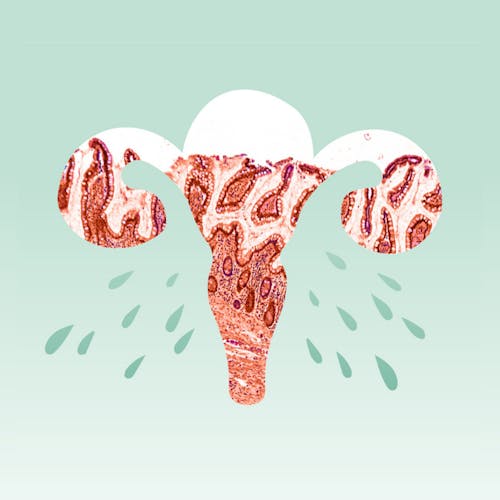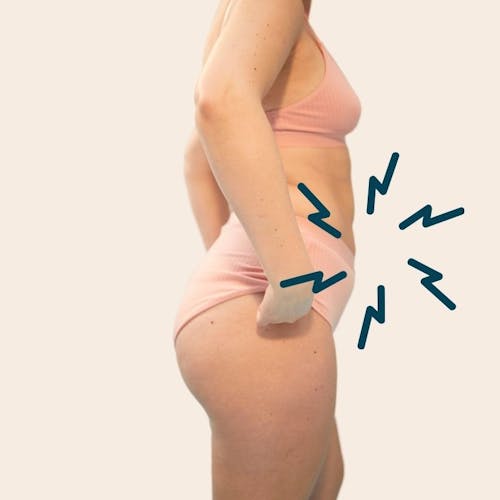This website uses cookies to enhance the user experience. By using Yoppie you are agreeing to our use of cookies.
Should You Get Endometriosis Surgery?
Written by Yoppie
07 Mar 2022
What’s going on inside?
Is surgery the only option for endometriosis treatment?
How can surgery help endometriosis?
What are the different types of endometriosis surgery?
What’s the difference between laparoscopy and laparotomy?
How effective is endometriosis surgery?
How do I know if endometriosis surgery is right for me?
If you’ve been diagnosed with endo you may feel a strange mix of worry about the condition and also a bit of relief - finally… all that pain and discomfort makes sense! But if you’ve heard the word ‘surgery’ floating around in your GP’s office and you’re wondering if it could be the solution for you, what it entails, and if it even works, then you’ve come to the right place. Let’s take a look at endometriosis surgery as a treatment, and if it’s right for you.
What’s going on inside?
Before you think about how surgery could help your endo, you’ll want to consider what’s actually going on in your body. With endometriosis, tissue similar to the lining of the uterus (called the endometrium) starts to grow outside the uterus where it’s not supposed to be.
When this happens, the hormones that affect the lining of your uterus each month can also trigger any misplaced tissue, leading to mild discomfort at best, and debilitating pain at worst. This tissue can grow on the ovaries, the fallopian tubes, inside the pelvis, and sometimes elsewhere.
Is surgery the only option for endometriosis treatment?
Definitely not. Before surgery is suggested you will likely be offered other treatments to see if they have a positive impact on your level of pain. This usually includes pain relief medication, anti-inflammatories, hormonal birth control, or hormone therapy.
How can surgery help endometriosis?
For those with severe pain from endometriosis, or other symptoms that are affecting their daily life, surgery may be offered if medication hasn’t improved their situation, or if they are trying to get pregnant. Endometriosis surgery involves finding the affected tissue in the body and removing some or all of it, to lessen their pain.
What are the different types of endometriosis surgery?
There are a few options when it comes to surgical treatments for endometriosis, so you’ll need to talk to your doctor about which is best for your specific situation. Endo surgery is often categorised in three ways; conservative, complex, or radical.
- Conservative surgery is usually done using a laparoscopy (sometimes known as keyhole surgery) and allows a surgeon to remove the endometriosis by either cutting it out or destroying it using heat or lasers
- Complex surgery may be used if your endo is more severe and has spread to other organs in the body, like the bowel. Complex surgery can still be done via laparoscopy
- Radical surgery is usually a last resort if medication or conservative surgery has not helped the situation, and it involves the removal of the womb (a hysterectomy) and/or removal of one or both ovaries (oophorectomy). This is an irreversible operation that directly affects fertility, so it’s an important decision to make with your doctor’s help
What’s the difference between laparoscopy and laparotomy?
Laparoscopy surgery is common in endometriosis cases. It’s is a minimally-invasive surgery where tiny incisions are made in the abdomen, the belly is filled with gas to improve visibility inside, and a small camera called a laparoscope is inserted, along with surgical instruments to remove the affected tissue. It is performed under general anaesthesia (you’ll be asleep and remember nothing!), and often patients can go home the same day.
Laparotomy surgery is sometimes called open surgery and is rarer in endometriosis cases. A larger incision will be made if the surgeon needs access to certain areas inside the abdomen due to more extensive endometriosis tissue. This is also done under general anaesthesia and may require an overnight stay in the hospital as recovery time is slightly longer.
How effective is endometriosis surgery?
Most people who have surgery for endo experience less pain afterwards, but it’s important to know that the results don’t always last, so if the pain comes back later in life you may need to undergo the procedure again in future. Research shows endometriosis returns in up to 20% of patients within 5 years of laparoscopy or laparotomy surgery, while around 15% of patients who undergo a total hysterectomy will experience further endo pain later in life.
How do I know if endometriosis surgery is right for me?
Endometriosis normally takes a while to properly diagnose, and once you have a diagnosis it may take several months or years of trying out different medications and treatments to see what works for your condition. However, at any point you can speak to your doctor about surgery options to find out what may be right for you, depending on your level of pain and personal circumstances.
For example, if you have severe pelvic pain, are having trouble getting pregnant, or you have a growth that needs to be removed, your doctor may suggest surgery sooner. In contrast, if you are close to menopause you may wish to avoid surgery as endo pain tends to disappear on its own after menopause.
As with any surgery, there are always risks like infection, but complications are rare so if you have weighed up the pros and cons and feel that surgery is right for you, speak to your doctor to find out more.
Have you had endometriosis surgery? You can share your experience in our Full Stop FB group, or if you have questions about the procedure feel free to reach out to us on Instagram at @itsyoppie. Don't forget that our personalised menstrual cycle subscription box can get organic tampons, PMS supplements and much more delivered easily and regularly through your letterbox, to give you just a bit more peace of mind each cycle.
Section jump
Back to top
Subscribe To Our Newsletter
YOPPIE





© 2026 Yoppie is a registered trademark of Phlo Technologies Ltd.
Yoppie's supplements are not a substitute for a varied diet and healthy lifestyle and are not intended to diagnose, treat, or cure any disease. If you are pregnant, breastfeeding, have a medical condition or are under medical supervision, please consult with your doctor before taking any of our products.






